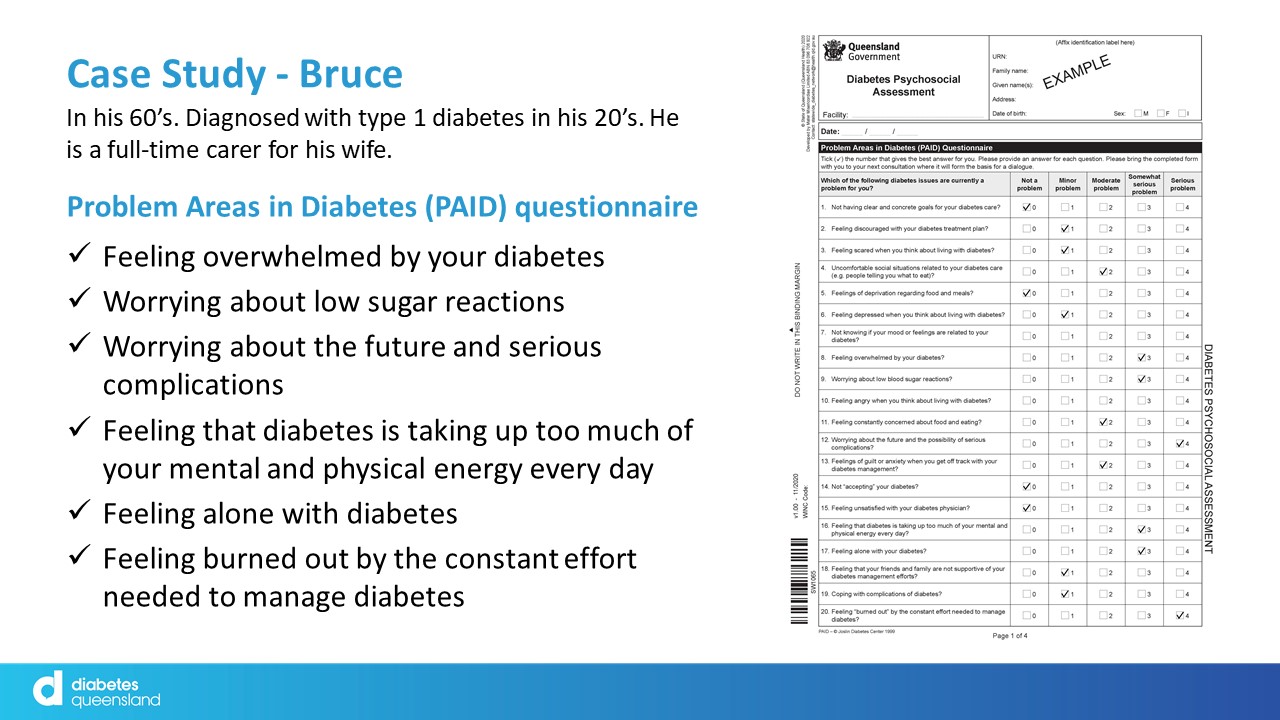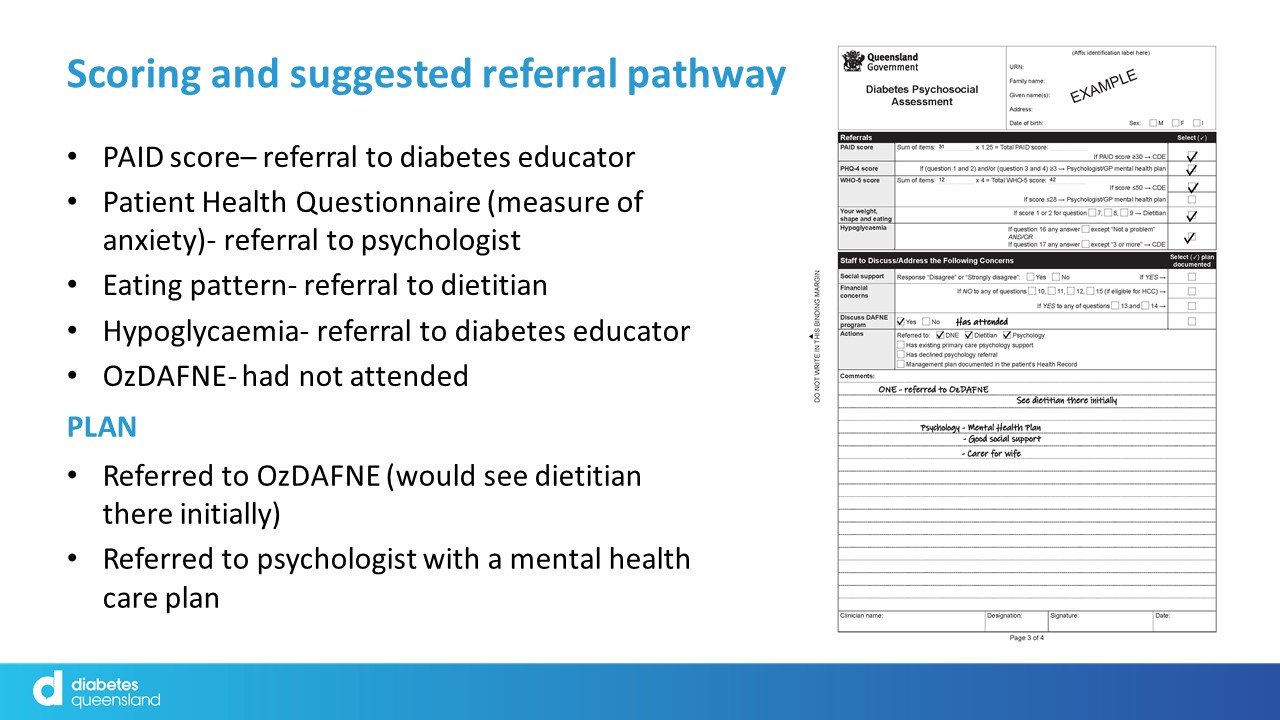Psychosocial screening for type 1 diabetes. Presented by Helen d’Emden, AdvAPD, CDE, MPhil
 Anthea Talliopoulos, APD
Anthea Talliopoulos, APD
Managing Type 1 Diabetes is demanding, requiring the performance of numerous daily tasks, including monitoring blood glucose levels, counting carbohydrate intake, taking medication, and working out an insulin regimen. This process is exhausting for individuals, can increase incidence of disordered eating, and lead to diabetes burnout. Hence, the optimisation of quality of life in these patients is as crucial as optimising glycaemic control and in the prevention of complications.
As health professionals, it can be easy to somewhat dismiss the psychosocial impact that living with and managing diabetes can have on our patients. However, we must remember that diabetes management is a complicated process, requiring self-management education and support which goes far beyond medical nutrition therapy, and diet and lifestyle modifications. Psychological care is a critical aspect of diabetes care and is highlighted within current guidelines for individuals living with Type 1 Diabetes of all ages- ranging from paediatrics, young adults and through to older adults.
In this informative and relevant presentation, Advanced Accredited Practising Dietitian Helen d’Emden integrates her expertise in dietetics, philosophy, and diabetes education to explain the importance of psychosocial screening in patients living with diabetes. She also walks us through the screening tools available including the Problem Areas in Diabetes (PAID) scale, the National Diabetes Services Scheme (NDSS) resources, and development of the routinely used Diabetes Psychosocial Assessment Tool (DPAT). These screening tools can be very helpful for monitoring the emotional and mental health of people with diabetes, increasing psychological referral and patient support. This indicates that we, as dietitians, should always be striving to best assist our patients via a collaborative approach, and with the broader multidisciplinary team.
Summary:
- Managing diabetes is complicated, impacted by numerous factors.
- Psychological well-being is considered an equally, if not a more important outcome of diabetes management, as medical management.
- Using questionnaires can be very useful tools for monitoring the emotional and mental health of people with diabetes by highlighting the challenges individuals are having with diabetes management.
- As health professionals, we should have confidence in assisting in screening then addressing the emotional concerns of our patients through our highly developed communication skills. Working with the broader multidisciplinary team, including mental health professionals is crucial to best assist our patients in an ethical and holistic manner.
Helen d’Emden is an advanced accredited practising dietitian, a credentialled diabetes educator and has a Master of Philosophy from the School of Medicine, University of Queensland. Her masters research involved assessment of disordered eating, and psychosocial screening of adolescents and young adults with type 1 diabetes and other chronic diseases.
Helen chaired the working group for guidelines on the prevention, screening, assessment and management of disordered eating and eating disorders in type 1 diabetes. She is an accredited OzDAFNE, DESMOND and SMARTS facilitator, delivering OzDAFNE in regional centres in Queensland and New South Wales. She recently led the development of the NDSS Online carb counting project.
To register for the presentation and associated documents including the assessment quiz click here

